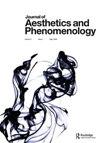Intimate Strangeness: Gadamer on Celan, Dialogue, and the Other
IF 0.2
0 PHILOSOPHY
引用次数: 0
Abstract
The poetry of Paul Celan, particularly his late work, offers a considerable challenge to hermeneutics. Stammering on the verge of silence, these poems expose understanding to its own limits. Yet, for Hans-Georg Gadamer, this is the point: to enter into an experience with the poem where one stands exposed before the other. His own commentary on Celan’s poem-series Atemkristall responds to the hermeneutic demand “to keep listening” as a summons “to let the poem speak.” 3 By listening closely to the language of the poem one allows the other’s voice to be heard. Hermeneutically conceived, understanding the poem means nothing else. This accords with Celan’s own description of the poem as underway toward the other. Indeed, the poet risks falling silent for the sake of such an encounter. Mindful that Celan’s work increasingly moves “toward the breathless stillness of muted silence,” Gadamer attends to the way that his poetry turns language against itself in an often desperate effort to find a word that bears witness to the other. Here, Celan avers, poetry becomes dialogue, even where it despairs of reaching the other. Lacoue-Labarthe writes: “Certainly [Celan’s] poetic questioning begins with a singular address: to the other, in fact envisaged as a ‘you.’” Addressing the other as you, his poems exhibit a dialogical relation of address and response. Here Gadamer’s emphasis on dialogue converges with Celan’s understanding of poetry. In fact, his encounter with Celan’s work reveals a deeper dimension of dialogue than we find in Truth and Method. Yet it is odd that the word “dialogue” is scarcely mentioned in Gadamer’s commentary, especially since Celan describes his own poetry as “essentially dialogue.” And yet dialogue is importantly implicit in its titular question, “Who am I and Who are You?” But this does not ask after their identity; as he observes, “I” and “you” remain undetermined in Celan’s poems where each is pronounced in changing ways. Instead, they must be understood from their relation to each other where I am the addressor and you are the addressee. With this question Gadamer underscores the dialogical relation that opens the space wherein I and you come to be who they are. I propose to conceive this dialogical relation as a correspondence of address and response in which I and you are correlated. Addressed by the other, I respond in turn by addressing the other as you. In “the mystery of an encounter” (Celan) I enter into relation with your ineradicable otherness (as you do mine) which remains concealed even in our presence to one another. Because the dynamic structure of correspondence is essential, Gadamer will insist on the reciprocity of dialogue in which I and you, each turning toward the other, enter into mutual relation. At the heart of dialogue thus lies the intimacy of being-towards-the-other that opens the possibility for their meeting. As亲密的陌生感:伽达默尔论策兰、对话和他者
保罗·策兰的诗歌,尤其是他的晚期作品,对解释学提出了相当大的挑战。这些诗在沉默的边缘结巴,将理解暴露在其自身的极限。然而,对于汉斯-格奥尔格·伽达默尔来说,这就是重点:进入一种与诗歌的体验,其中一个站在另一个面前。他自己对策兰诗歌系列《Atemkristall》的评论回应了“继续倾听”的解释学要求,这是一种“让诗歌说话”的召唤。通过仔细聆听诗歌的语言,一个人可以听到另一个人的声音。从解释学的角度来看,理解这首诗没有别的意义。这与策兰自己对这首诗的描述是一致的。事实上,诗人为了这样的相遇而冒着沉默的风险。伽达默尔注意到,策兰的作品越来越“走向无声的寂静中令人窒息的寂静”,他注意到,他的诗歌将语言与自身对立起来,常常绝望地努力寻找一个见证另一个词的词。在这里,策兰断言,诗歌变成了对话,即使在它对到达对方感到绝望的地方。拉科-拉巴特写道:“当然,(策兰)诗意的质疑始于一个单一的地址:对他者,实际上被设想为一个‘你’。他把对方称为你,他的诗表现出一种对话性的回应关系。在这里,伽达默尔对对话的强调与策兰对诗歌的理解是一致的。事实上,他与策兰作品的相遇揭示了比我们在《真理与方法》中发现的更深层次的对话。然而,奇怪的是,“对话”这个词在伽达默尔的评论中几乎没有提到,特别是因为策兰把自己的诗歌描述为“本质上的对话”。然而,对话重要地隐含在其名义上的问题中,“我是谁,你是谁?”但这并没有追问他们的身份;正如他所观察到的,“我”和“你”在策兰的诗中仍然是不确定的,每一个都以不同的方式发音。相反,它们必须从彼此之间的关系来理解,我是寄件人,你是收件人。通过这个问题,伽达默尔强调了对话关系,它打开了我和你成为他们自己的空间。我建议将这种对话关系设想为我和你相互关联的地址和回应的对应关系。对方称呼我,我也以你的称呼回应对方。在“相遇的奥秘”(Celan)中,我与你不可磨灭的他性(就像你对我一样)建立了关系,即使在我们彼此面前,他性仍然隐藏着。因为通信的动态结构是必不可少的,伽达默尔将坚持对话的互惠性,其中我和你,彼此转向对方,进入相互关系。因此,对话的核心在于彼此之间的亲密关系,这为他们的会面打开了可能性。作为
本文章由计算机程序翻译,如有差异,请以英文原文为准。
求助全文
约1分钟内获得全文
求助全文

 求助内容:
求助内容: 应助结果提醒方式:
应助结果提醒方式:


